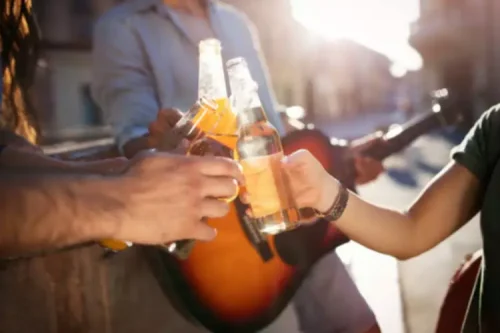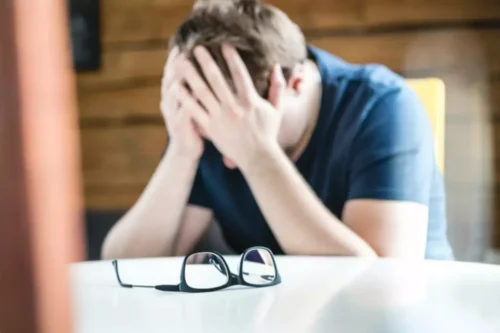It is an awkward, vulnerable dance between two awkward, vulnerable humans. You are a mirror now, a flashlight of sobriety in a society that is laced with the judgment that it’s abnormal to abstain from alcohol. People will assume you drink and will be very curious about why you don’t have a drink in your hand when they do. While making the decision to be sober was the best thing I’ve ever done, it’s also one of the hardest. Not only because not drinking is hard, but also because we live in a society where most everyone around us drinks.
- I got out of debt, started a company that provides digital recovery, launched a podcast, and am in the middle of writing a book.
- Some nights I could have 10 or 15 drinks and appear totally sober; some nights a drink or two would send me into an epic blackout and I would lose hours of the night.
- It is an opportunity to change your recovery plan, rather than a reason to give up on sobriety.
- Information and support for those affected by alcoholism/Alcohol Use Disorder.
- Sometimes, consider how your behavior has affected others.
- Republicans going after Hunter Biden for his addiction in this way is a dangerous game.
- You have the power to make changes that will improve your life, make sobriety more interesting, and connect with awesome people who can help you enjoy your life in recovery.
Could You Have a Caffeine Addiction (and What Can You Do About It)?
People with co-occurring disorders may have a hard time with sobriety. A co-occurring disorder is a disorder that a person has in addition to a substance use disorder, such as major depression or generalized anxiety. Even if you have decided to quit drinking ‘on your own‘, with the explosion of technology the support around us has never been so great. There are options for groups, meetings and virtual support if you prefer. Online groups are an amazing resource, with groups to suit everyone’s personality. A topic that is not often mentioned is the potential downsides of quitting drinking alcohol.
What does getting sober feel like?
Emily Guarnotta, PsyD, is a licensed clinical psychologist who offers her expertise in mental health as a contributor to GoodRx. She is a graduate of the California School of Professional Psychology (CSPP) in San Diego, California. Her specialty areas include the treatment of anxiety, depression, and perinatal mood and anxiety disorders. In addition to her work with new parents, she also has experience treating substance use disorders and helping people recover from addictions. You can find out more about Dr. Guarnotta at themindfulmommy.com.
- Knowing that you will have more time on your hands (the time you would have spent drinking!), gives you the upper hand.
- Using drugs and alcohol can cause health problems.
- As with most problems, the solution is as difficult or as simple as we make it.
- And you need to know that you can make it through without relapsing.
- Setbacks don’t erase progress, though, and they don’t mean you’ve “failed” to stay sober.
What Is Sobriety?

Just feeling really jittery and anxious and irritated at the slightest things. I’m grateful for not having a hangover today but overall this sucks. And when I couldn’t seem to get ready in time, or when my purse was a tangle of wadded keys and gum wrappers I felt so bereft.
Knowing that you will have more time on your hands (the time you would have spent drinking!), gives you the upper hand. Make plans, even if they are alone, plan your time out and find things instead of drinking. When these feelings do return (and they often do – be it the first week, the first month or even years down the line. Finding ways to relax after a hard days work WITHOUT reaching for the bottle?

You have to motivate yourself, schedule it in, and consistently do the things that will help you improve your life in recovery. Anything you can do to improve your overall health and wellness will serve double duty and improve your ability to stay sober. At any moment, someone’s aggravating behavior or our own bad luck can set us off on an emotional spiral that threatens to derail our entire day. Here’s how we can face our triggers with less reactivity so that we can get on with our lives.
The Alcohol Off Switch
Before I quit drinking, I never really used to care about dividing the bill down the middle with a group. At some point after college, it just didn’t matter if someone had a meal that was four dollars more than mine, or if they ate more edamame, or even if they had one more drink than I did. Not only because my portion of the check is significantly smaller than anyone else at the table, but also because I refuse to invest in Big Alcohol. It’s part of the sobriety package, and it’s not necessarily a bad thing.

Stay Up to Date

Biomedical Papers of the Medical Faculty of Palacky University in Olomouc. If you are contemplating that being sober sucks, try and focus on the reasons that you became sober in the first place. Focus on the positive things that being sober brings with it.
- Just being honest with each other and not having shame — which, to be honest, I don’t know why there’s any shame attached to addiction — it really catapulted me to getting sober.
- In the meantime, remember that achieving 1 month of sobriety is an accomplishment.
- The first week of sobriety is often the most difficult.
Or maybe those crotchety old-timers like to complain about life. Or the newcomer has unrealistic expectations and judges others unfairly. Acceptance of one another and each individual’s right to walk her own path is the solution. Why do people, who have been sober for years, behave inappropriately with alarming regularity? Recently, I was asked this question in group therapy (the exact words have been edited as they were not fit to print). The person who posed the question felt she had been misled.
